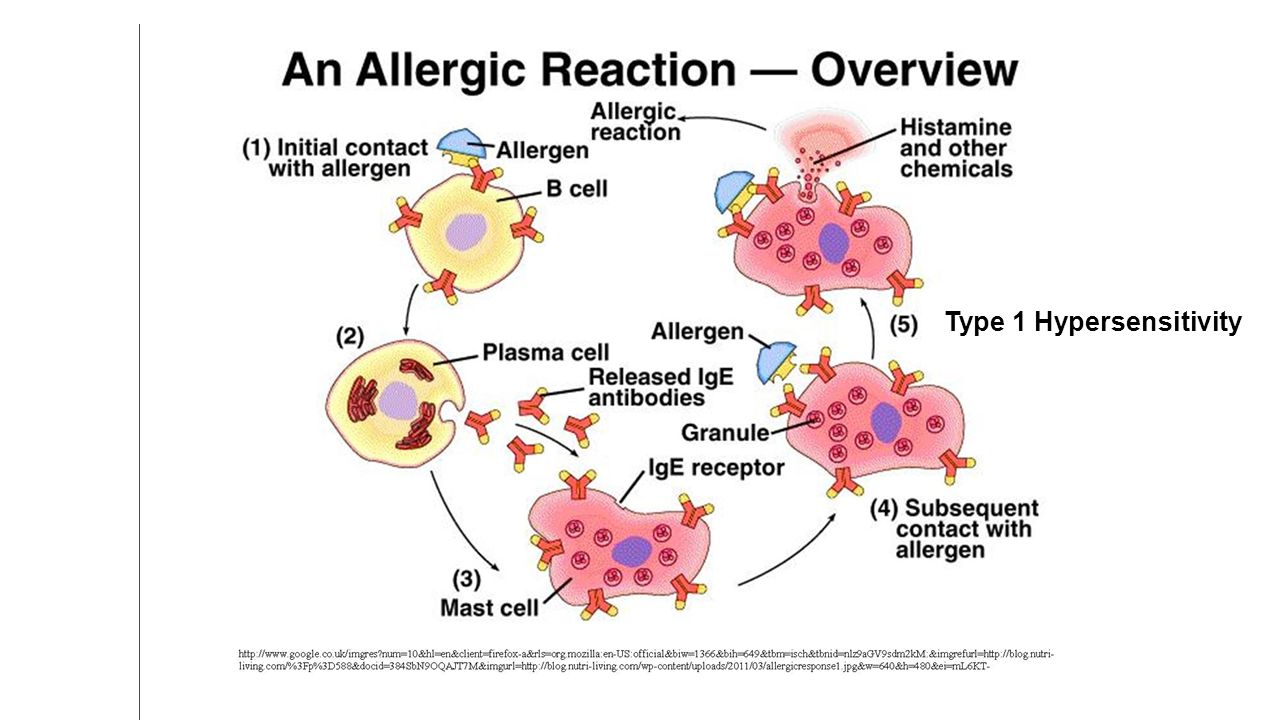Why do we get allergies?
Many of us will get allergic reactions in our lifetimes. They can range from a minor irritancy, such as hayfever, to potentially life-threatening conditions, such as anaphylaxis brought on from a nut allergy.

figure 1. Sneezing
Much like autoimmune diseases, allergies are mediated though an inappropriate response of the immune system to a stimulus. In the case of autoimmunity, the immune system is mobilised against the host, whereas, in allergies the immune system is activated against a harmless allergen. A list of allergens can be found here
What causes the immune system to react against allergens?
It is due to a process known as hypersensitivity, which refers to immune responses that are damaging rather than helpful to the host. The hypersensitivity reaction causing allergies is known as type I hypersensitivity.
Type I hypersensitivity is caused by a specific type of antibody (IgE) being exposed to an allergen. Antibodies are specific proteins, produced by B cells, that bind to pathogens to aid with their neutralisation and destruction. There are various types of antibody, each given a letter based on its structure and function. In the case of allergic reactions, the antibody in question is IgE.
What is the mechanism of type I hypersensitivity?
When an allergen is introduced into the body the IgE antibody will bind to it. IgE will then bind to its specific receptors (FcεRI) on mast cells.
If the allergen is encountered again, the IgE antibodies (which will have remained in the blood as memory cells), will bind to it and recruit mast cells. This activation of mast cells has two effects, an immediate and a delayed response. The immediate response causes mast cells to release primary inflammatory mediators (such as histamine and serotonin). The delayed mast cell response occurs because IgE activates the synthesis of secondary inflammatory mediators (such as leukotrienes and prostaglandins) within the cells.
These inflammatory mediators released by mast cells will of course result in inflammation. The resulting inflammation causes the symptoms associated with allergies, like sneezing, coughing, muscle contraction and even vomiting.

figure 2. Type I hypersensitivity mechanism
How can allergies be treated?
It depends on the severity of the allergy. More mild reactions, like hayfever, are treated with antihistamines. These counteract the histamine released from mast cells in the primary inflammatory response to alleviate symptoms.
Severe allergic reactions can cause a rapid increase in the permeability of blood vessels resulting in a very dangerous and extreme drop in blood pressure, known as anaphylactic shock. This is caused by the release of inflammatory mediators. Treatment for these allergic reactions must occur in two stages, firstly antihistamines are administered to block the primary inflammatory response. Secondly, corticosteroids must also be given to prevent the delayed secondary inflammatory response.
The secondary inflammatory response can occur many hours after the exposure to the antigen, and the initial symptoms may have disappeared. It is because of this that some patients get discharged after the initial anaphylactic shock, only to die hours later due to the secondary response.

figure 3. Symptoms of anaphylaxis
What property distinguishes allergens from other pathogens?
It is currently unknown which common factor among allergens can stimulate a strong IgE response. Perhaps further research is needed into the mechanisms of type I hypersensitivity, but it seems unlikely that allergic reactions will be able to be prevented entirely.
References:
Hypersensitivity
Antibodies
Inflammation
Anaphylaxis
Treatment of anaphylaxis
Allergens
Peoples immune systems seem to be so weak nowadays. I grew up on a farm never worried about germs. Sickness was never an issue for any of the family.
People now spent so much time killing germs that they have no resistance when they do encounter them.
This is somewhat true. Being exposed to germs is not necessarily a bad thing, it helps to build up some adaptive immunity to pathogens.
Our lack of exposure to infectious agents is thought to be the cause of autoimmunity (which I discussed in a previous article), and is known as the hygiene hypothesis.
I agree with you. I suspect growing up with germs somehow trains the immune system not to be so sensitive.
Same as anything. Exposure in small amounts will just help your resistance. Its the same when we were in college, we drank so often that it had very little effect on us compared to people who stayed away from drink and were fading after 2 drinks.
Ur post is very good for information in post
Good luck my friend @ovij👍👍👍
Following you!
Congratulations @ovij! You have received a personal award!
Click on the badge to view your Board of Honor.
Do not miss the last post from @steemitboard:
SteemitBoard World Cup Contest - Quarter Finals - Day 2
Participate in the SteemitBoard World Cup Contest!
Collect World Cup badges and win free SBD
Support the Gold Sponsors of the contest: @good-karma and @lukestokes
Congratulations @ovij! You have completed the following achievement on the Steem blockchain and have been rewarded with new badge(s) :
Click here to view your Board of Honor
If you no longer want to receive notifications, reply to this comment with the word
STOPDo not miss the last post from @steemitboard:
Congratulations @ovij! You received a personal award!
You can view your badges on your Steem Board and compare to others on the Steem Ranking
Vote for @Steemitboard as a witness to get one more award and increased upvotes!